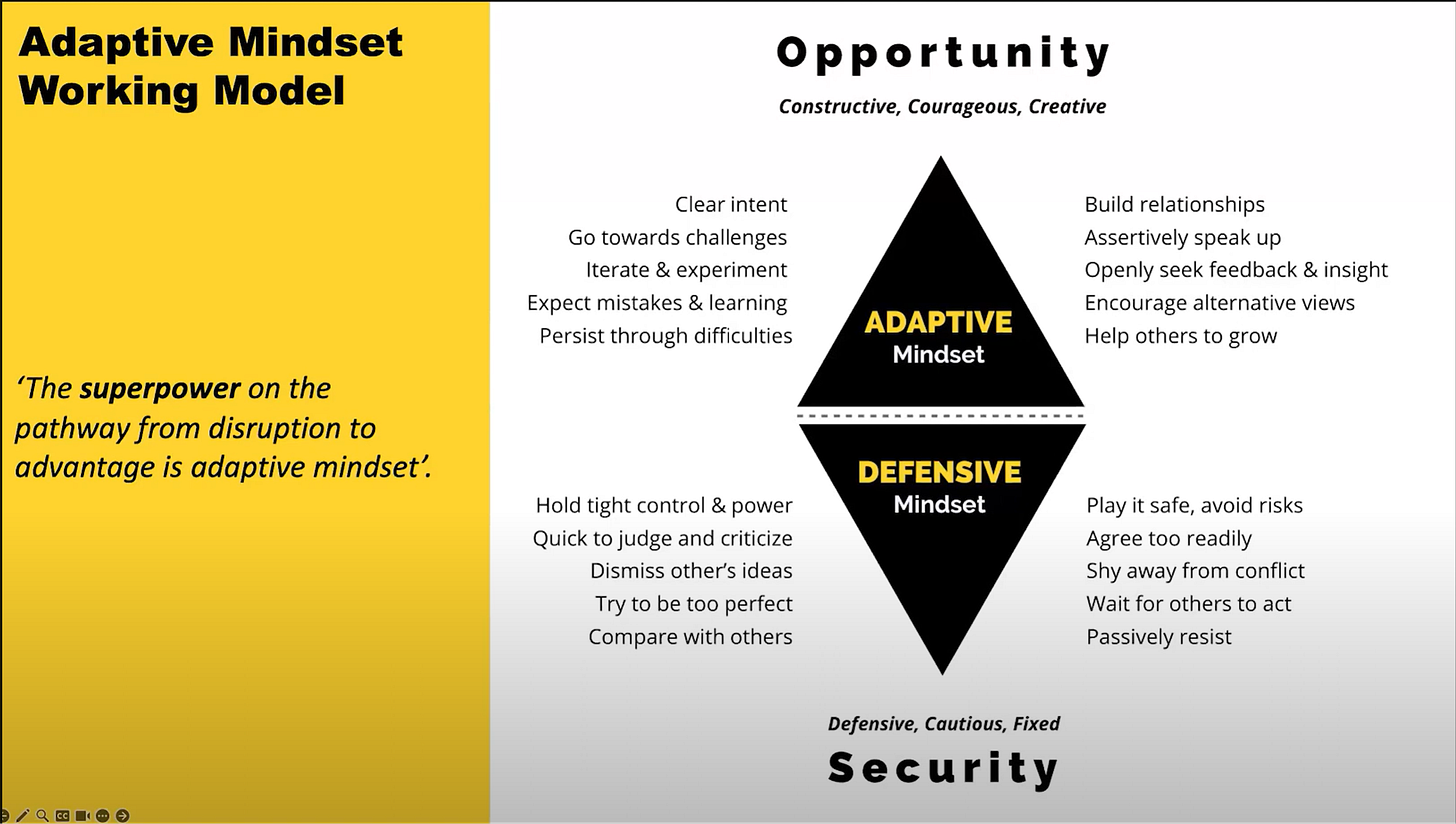The New Non-Negotiable: Embracing Adaptability
I was once talking to a friend whose brother was pursuing a master's degree in medicine.
“The medical profession is tough; you have to constantly study even after eight years of graduate and postgraduate education,” I quipped.
“We, as engineers, have it tougher,” he replied.
And he was right - every few months - there is a new technology or an upgrade that you have to keep up with.
Every few years you have to unlearn and learn new tools and technologies.
Although all professions require constant upgrading, the pace at which technology changes means that, in my opinion, software engineers face the most relentless grind.
The tech industry is characterized by rapid changes and constant evolution, making adaptability a crucial skill for professionals aiming to thrive in their careers.
The Adaptive Mindset
An adaptive mindset encompasses the ability to adjust thoughts, actions, and behaviors in response to new or changing situations.
In the tech landscape, where advancements can render skills obsolete overnight, being adaptable is no longer optional; it is essential.
This mindset involves embracing change, learning from new experiences, and proactively seeking opportunities for growth.
Ask any engineer you look up to and they’ll share how they had to navigate changes through the adaptive mindset strategies.
I like the illustration below by psychologist Graham Winter where he defines Adaptive Mindset as “The superpower on the pathway from disruption to advantage”.
Strategies to Cultivate an Adaptive Mindset
Embrace Change: View change as an opportunity rather than a threat.
Continuous Learning: Regularly update skills and knowledge.
Stay Open-Minded: Be willing to consider new ideas and perspectives.
Practice Resilience: Develop the ability to bounce back from setbacks.
Seek Feedback: Use constructive criticism to grow and improve.
Cultivate Curiosity: Stay curious and inquisitive about the world around you.
Set Flexible Goals: Be ready to adjust goals as circumstances change.
Develop Emotional Intelligence: Improve self-awareness and empathy.
Engage in Problem-Solving: Approach challenges with a solution-oriented mindset.
Surround Yourself with Diverse Thinkers: Learn from people with different experiences and viewpoints.
𝗛𝗼𝘄 𝘁𝗼 𝗧𝗵𝗶𝗻𝗸 𝗔𝗯𝗼𝘂𝘁 𝗔𝗜 𝗔𝗴𝗲𝗻𝘁𝘀
As I continue to experiment with and implement 'agents' at work, I realize that thinking about agents beyond automation enablers can lead to a better approach to creating AI agents.
One of the best approaches was suggested by Andrej Karpathy - the "LLM OS."
Andrej suggests that LLMs can coordinate and manage resources similarly to an operating system, allowing for more sophisticated interactions without user intervention.
This positions LLMs not just as tools, but as integral components of a broader computational framework. The LLMs can exhibit "agentic" behavior, enabling them to take initiative and make decisions based on user input.
While we are still far from fully autonomous agents, in my opinion, you can still create a scaled-down version for specific tasks by following these steps:
- Define Clear Objectives
- Break Down Tasks
- Select Appropriate Tools
- Implement Decision-Making Logic through prompts
- Enable Adaptability for ambiguous inputs
- Incorporate Feedback Mechanisms
- Test and Iterate
You can read the post here.
Articles I wrote on my blog zahere.com
Interesting articles I read this week
Thank you so much for investing your time in reading this article.
In the coming days, I will share tutorials on building AI agents and automation solutions.
Do not forget to subscribe if you haven't already.





